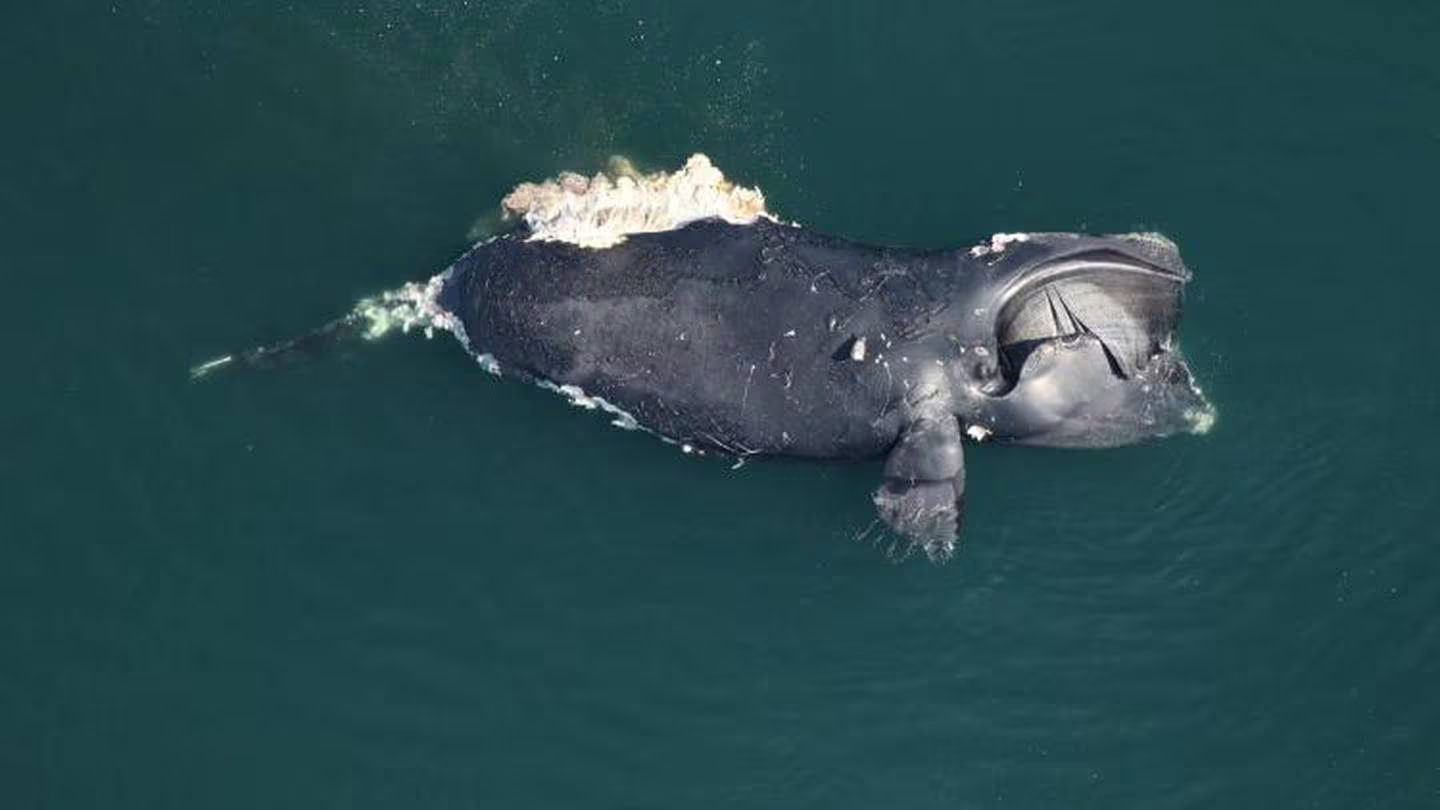Wildlife officials have verified the discovery of a lifeless right whale off the coast of Georgia, dealing a catastrophic setback to conservation efforts. The 2024 calving season witnessed the death of the adult female whale, designated as #1950, which constituted the fortieth fatality in the continuous Unusual Mortality Event (UME) that impacts North Atlantic right whales.
The disappearance of whale #1950 serves as a sobering reminder of the dire circumstances that this critically endangered species is confronted with, in addition to being a tragic event in and of itself. Given the sluggish reproductive rate and the critical significance attributed to each newborn calf, the future of the right whale population is inherently precarious with each mortality.
Last month, a right whale was discovered deceased along the coast of Georgia, having succumbed to severe injuries sustained in a boat strike. This most recent casualty follows in the terrible line of discoveries. The urgency for improved conservation measures to safeguard these magnificent creatures from the dangers of human intervention is confirmed by the recurrence of such incidents.
The life narrative of Whale #1950 tenderly illustrates both fortitude and susceptibility. Her most recent sighting occurred in 1989, and it was during the winter lactation season that she delivered her sixth offspring. As a result of its mother’s untimely death, her infant is now tragically classified as a severely injured dependent heifer, having been abandoned.
Conservation endeavors have been significantly hindered by the 125 North Atlantic right whales that have perished in vessel collisions and entanglements in fishing gear since the Unusual Mortality Event for 2017 was declared. This has occurred in waters of the United States and Canada. The present data highlights the critical nature of developing all-encompassing approaches to prevent anthropogenic hazards and ensure the long-term survival of the species.
It is impossible to overstate the urgency of taking action as marine scientists warn of the critical situation threatening North Atlantic right whales. Urgent intervention is required to address the underlying causes of the whales’ decline in population, as their sluggish reproduction rate and susceptibility to human impacts render them especially perilous to extinction.
The whales are compelled to venture into unprotected waters, where they are more susceptible to collisions with vessels, as a result of climate change’s substantial influence on the food chain and the alteration of oceanic temperature distribution. Preserving critical habitats and mitigating climate change are thus of the utmost importance for the species’ long-term livelihoods.
Environmental groups advocate for stronger protections and conservation measures to ensure the survival of North Atlantic right whales, whereas the federal government has proposed new ship speed regulations to reduce the risk of vessel collisions in response to the increasingly dire situation.
Read More News:
- Justice Served: Woodstock Man Convicted of Aggravated Child Molestation
- Six Flags Over Georgia: A Story of Lockdown by the Police and Tons of Youthful Energy
- Serious Motorcycle Crash in Cobb County Leaves Two Injured
The dire consequences that these majestic creatures face are perfectly illustrated by the tragic demise of whale #1950. Addressing the multifaceted threats to North Atlantic right whales and ensuring their continued survival in their natural habitat is more important than ever.

